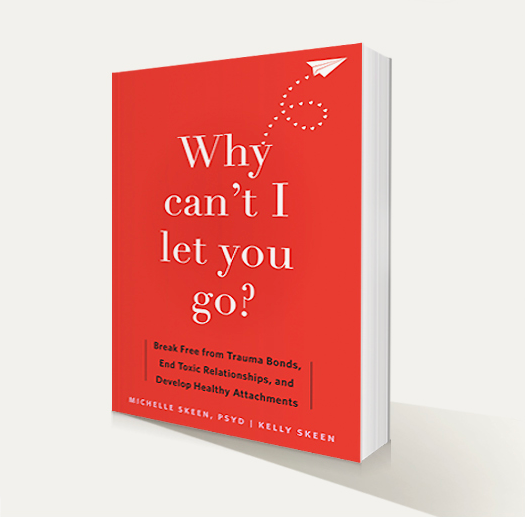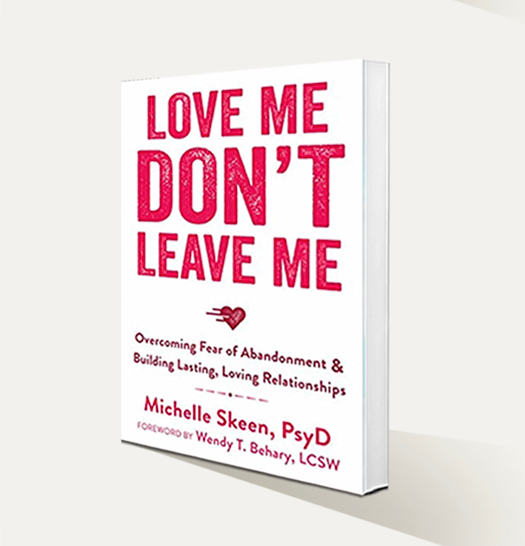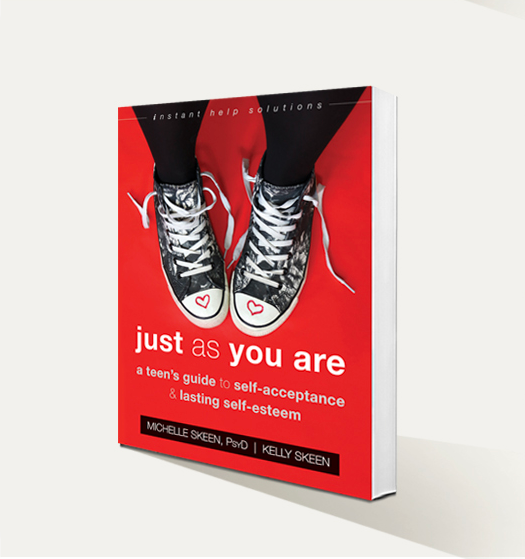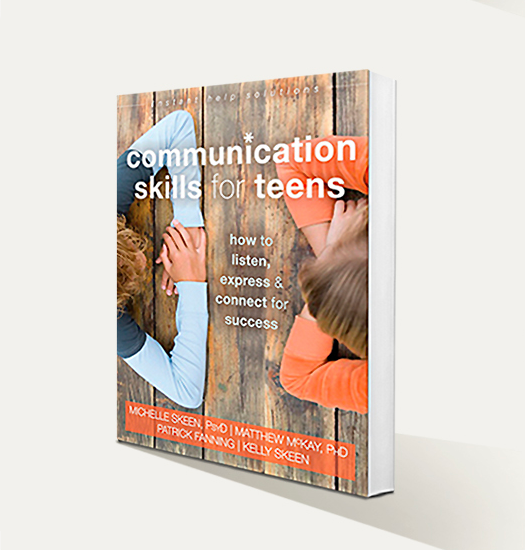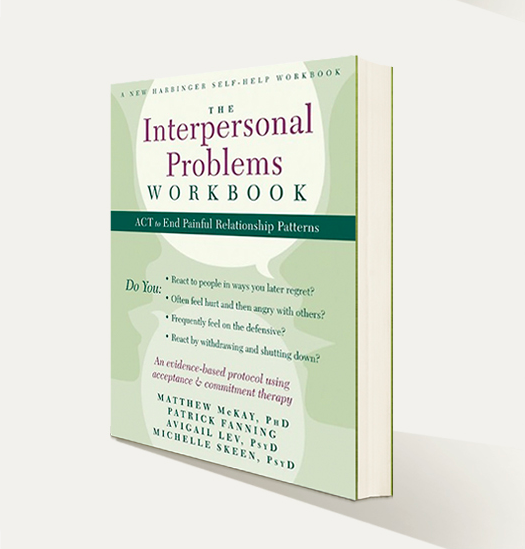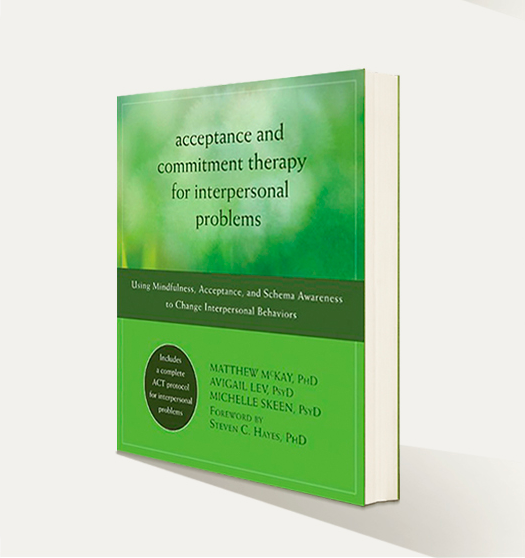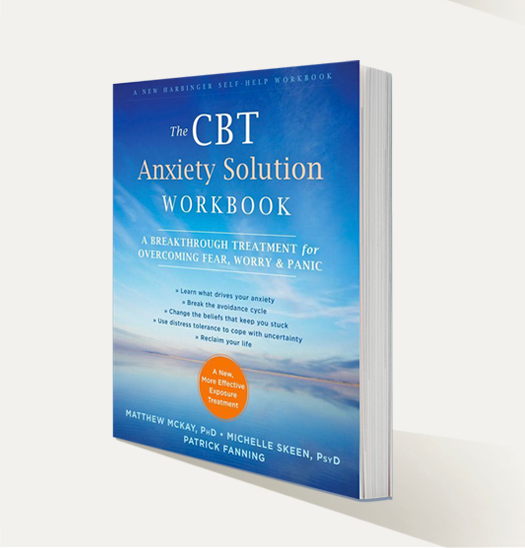Radio show on Thursday November 1, 2018
This week on Relationships 2.0 my guest host is Shawn T. Smith PsyD who interviewed me about my book Love Me Don’t Leave Me: Overcoming the Fear of Abandonment & Building Lasting, Loving Relationships
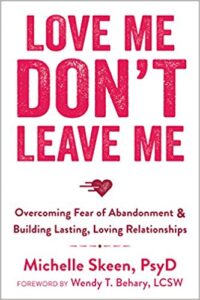 About the book: Everyone thrives on love, comfort, and the safety of family, friends, and community. But if you are denied these basic comforts early in life, whether through a lack of physical affection or emotional bonding, you may develop intense fears of abandonment that can last well into adulthood―fears so powerful that they can actually cause you to push people away. If you suffer from fears of abandonment, you may have underlying feelings of anger, shame, fear, anxiety, depression, and grief. These emotions are intense and painful, and when they surface they can lead to a number of negative behaviors, such as jealousy, clinging, and emotional blackmail. In Love Me, Don’t Leave Me, therapist Michelle Skeen combines acceptance and commitment therapy (ACT), schema therapy, and dialectical behavioral therapy (DBT) to help you identify the root of your fears. In this book you’ll learn how schema coping behaviors―deeply entrenched and automatic behaviors rooted in childhood experiences and fears―can take over and cause you to inadvertently sabotage your relationships. By recognizing these coping behaviors and understanding their cause, you will not only gain powerful insights into your own mind, but also into the minds of those around you. If you are ready to break the self-fulfilling cycle of mistrust, clinginess, and heartbreak and start building lasting, trusting relationships, this book will be your guide.
About the book: Everyone thrives on love, comfort, and the safety of family, friends, and community. But if you are denied these basic comforts early in life, whether through a lack of physical affection or emotional bonding, you may develop intense fears of abandonment that can last well into adulthood―fears so powerful that they can actually cause you to push people away. If you suffer from fears of abandonment, you may have underlying feelings of anger, shame, fear, anxiety, depression, and grief. These emotions are intense and painful, and when they surface they can lead to a number of negative behaviors, such as jealousy, clinging, and emotional blackmail. In Love Me, Don’t Leave Me, therapist Michelle Skeen combines acceptance and commitment therapy (ACT), schema therapy, and dialectical behavioral therapy (DBT) to help you identify the root of your fears. In this book you’ll learn how schema coping behaviors―deeply entrenched and automatic behaviors rooted in childhood experiences and fears―can take over and cause you to inadvertently sabotage your relationships. By recognizing these coping behaviors and understanding their cause, you will not only gain powerful insights into your own mind, but also into the minds of those around you. If you are ready to break the self-fulfilling cycle of mistrust, clinginess, and heartbreak and start building lasting, trusting relationships, this book will be your guide.
About the author: Michelle Skeen, PsyD, has a doctorate in clinical psychology. She is author of seven books, all designed to enhance relationships by emphasizing the importance of identifying core values and valued intentions, limited thinking, mindfulness, self-compassion, empathy, and effective communication and conflict resolution skills. Her passion is coaching individuals in creating and maintaining healthy relationships by bringing awareness to obstacles (fears and beliefs), which often work unconsciously to limit connections with others. Michelle believes that an early introduction and education in core values and healthy communication are essential life skills for success. To that end, Michelle and her daughter, Kelly, coauthored Communication Skills for Teens and Just As You Are. Skeen completed her postdoctoral work at the University of California, San Francisco. She codeveloped an empirically validated protocol for the treatment of interpersonal problems that resulted in two books: Acceptance and Commitment Therapy for Interpersonal Problems and The Interpersonal Problems Workbook. Michelle’s work has appeared in more than thirty publications around the world. She hosts a weekly radio show called Relationships 2.0 with Dr. Michelle Skeen that airs nationally. To find out more, visit her website at www.michelleskeen.com.
My radio show on Thursday August 2, 2018
This week on Relationships 2.0 my guest is Kelly Skeen co-author of Just As You Are: A Teen’s Guide to Self-Acceptance & Lasting Self-Esteem
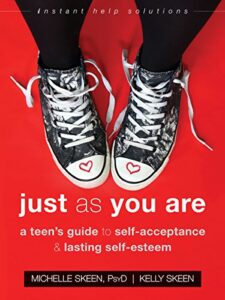 About the book:
About the book:
Stop comparing yourself to others—you’re special just as you are! In this fun, practical guide, you’ll learn how to silence your nit-picky inner critic, cultivate self-compassion, and discover what really matters to you.
If you’re like many teens, you probably feel pressured to live up to the impossible standards set by our culture, the media, and even by your peers. After all, everyone wants perfect hair, a perfect body, cool friends, and good grades. But while it’s okay to strive to be your best, it’s also easy to get caught up in a never-ending comparison game that can feed your inner critic and rob you of your happiness. So, how can you break free from negative self-criticism and learn to appreciate your strengths?
In Just As You Are, psychologist Michelle Skeen and her daughter, Kelly Skeen, offer simple tips to help you overcome feelings of inadequacy and unworthiness, stop comparing yourself to others, and be more open and accepting of all aspects of who you are. You’ll also learn how to be more aware of your thoughts and feelings in the moment using powerful mindfulness tools, and build a plan of action for the future based on your values.
Sometimes it’s hard to see yourself with clarity and kindness. With this important guide, you’ll learn to move past your faults, celebrate your true strengths, and discover what really matters in your life. What are you waiting for?
About the author:
Kelly Skeen is a recent graduate of Georgetown University in Washington, DC. As an American studies major, she concentrated in art and museum studies, and plans to pursue a career expanding access to the visual arts. She is also coauthor of Communication Skills for Teens with her mother, Michelle Skeen. Skeen strives every day for greater self-acceptance and to embrace who she really is! To learn more, visit her website at www.kellyskeen.com.
Does Social Media Feed Your Feelings of Unworthiness?
 By Kelly Skeen and Michelle Skeen, PsyD, authors of Just As You Are
By Kelly Skeen and Michelle Skeen, PsyD, authors of Just As You Are
How many times have you looked at your phone today? 10? 20? 30? 40? If you’re an average tween or teen you’ve looked at your phone 46 times. And, you’ve spent a third of your day using media—Instagram, Facebook, online videos, and music. Maybe you do it without thinking.
Have you ever thought about how all of these images are impacting your beliefs about yourself and others? It’s likely that, knowingly or unknowingly, you are comparing yourself to the images you see on your feeds every day. All of us struggle with some aspect of ourselves. This feeling is reinforced and likely made worse by social media and the constant and ever-changing messages you receive about what you need to do, to look like, and to act like in order to be accepted. It can leave you feeling like you need to hide parts of yourself that aren’t perfect and/or don’t fit within the norm. This by itself feels like a setup for failure.
As you might imagine, your beliefs about yourself are a mixed bag. You probably hold some beliefs about yourself that are positive. Maybe you make friends easily, you have great hair, you are close with your siblings, you excel academically, you’re good at sports, and so on. But you also likely have beliefs about yourself that are negative. In fact, this might mean that you are hiding parts of yourself because you fear being judged, not accepted, or both. You may feel that you are outside of the norm in some way. There might even be aspects of your identity that you have no control over or you don’t like—such as your ethnicity, religion, family, culture, height, eye color, body type…you get the point.
Of course, there is even more of your life that is out of your control, because you have parental figures who control parts of your life that you have little or no say about—where you live, what school you attend, activities you are or are not allowed to participate in, who you can be friends with, who you can date—the list goes on. There’s a good chance that you feel inadequate, flawed, or not good enough as a result of some of these factors.
Every teenager (even the ones that seem perfect!) struggles with feelings of inadequacy, defectiveness, and unworthiness. This impacts your feelings of self-worth, which might be holding you back or getting in the way of satisfying peer interactions and acceptance. Like most people, you care what other people think of you, and you probably spend at least some time comparing yourself to your peers. Social media feeds our natural tendency to compare how we measure up to others. This can result in feeling that you are flawed—not as perfect as other people might seem. When these feelings get repeatedly reinforced over time, it can lead to shame, depression, anxiety, and isolation.
We are all wired to connect with others, and when we do make healthy connections, we thrive. So it makes sense that we would want to be accepted by others, and we would fear being found not good enough and rejected. In fact, you may go to great lengths to avoid judgment or rejection from others. This might include seeking affirmation from others, being unable or unwilling to make decisions without approval from others, or having difficulty hearing even mild criticism.
You may find it difficult to accept and share parts of yourself that are out of your control, or you may feel like you need to be a certain way to be liked and accepted by others. Or you may focus more of your energy on others to distract them from the ways in which you feel insufficient. You may already be thinking about the parts of yourself that make you feel less than, or that you hide from others because you fear the response you might receive. And you might even be aware of the ways this holds you back from realizing your full potential or building the relationships that you long for.
The truth is that you don’t have to keep hiding from others or comparing yourself to others. You are beautiful and perfect just as you are.
Lifelong struggles with feelings of unworthiness and inferiority begin with beliefs formed when we’re teenagers. Just As You Are empowers teens to identify and eliminate these beliefs now, before they take root and cause problems like depression, addiction, and failed relationships in adulthood.
https://www.newharbinger.com/blog/does-social-media-feed-your-feelings-unworthiness
My radio show on Thursday July 12, 2018
This week on Relationships 2.0 my guest is Karen Bluth, PhD author of The Self-Compassion Workbook for Teens: Mindfulness & Compassion Skills to Overcome Self-Criticism & Embrace Who You Are
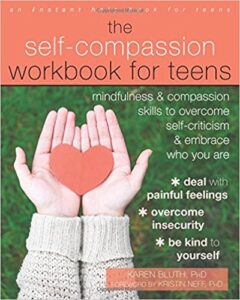 About the book:
About the book:
Your teen years are a time of change, growth, and—all too often—psychological struggle. To make matters worse, you are often your own worst critic. The Self-Compassion Workbook for Teens offers valuable tools based in mindfulness and self-compassion to help you overcome self-judgment and self-criticism, cultivate compassion toward yourself and others, and embrace who you really are.
As a teen, you’re going through major changes—both physically and mentally. These changes can have a dramatic effect on how you perceive, understand, and interpret the world around you, leaving you feeling stressed and anxious. Additionally, you may also find yourself comparing yourself to others—whether its friends, classmates, or celebrities and models. And all of this comparison can leave you feeling like you just aren’t enough. So, how can you move past feelings of stress and insecurity and start living the life you really want?
Written by psychologist Karen Bluth and based on practices adapted from Kristin Neff and Christopher Germer’s Mindful Self-Compassion program, this workbook offers fun and tactile exercises grounded in mindfulness and self-compassion to help you cope more effectively with the ongoing challenges of day-to-day life. You’ll learn how to be present with difficult emotions, and respond to these emotions with greater kindness and self-care. By practicing these activities and meditations, you’ll learn specific tools to help you navigate the emotional ups and downs of the teen years with greater ease.
Life is imperfect—and so are we. But if you’re ready to move past self-criticism and self-judgment and embrace your unique self, this compassionate guide will light the way.
About the author:
Karen Bluth, PhD, earned her doctoral degree in child and family studies at the University of Tennessee. She is currently research faculty in the Program on Integrative Medicine in the Department of Physical Medicine and Rehabilitation at the University of North Carolina School of Medicine. Her work focuses on the roles that mindfulness and self-compassion play in promoting well-being in teens. Bluth was awarded a Francisco J. Varela research award from the Mind and Life Institute in 2012, which allowed her to explore the effects of a mindfulness intervention on adolescents’ well-being through examining stress biomarkers. In spring 2015, she received internal University of North Carolina funding to explore relationships among mindfulness, self-compassion, and emotional well-being in teens in grades 7–12. With current NIH funding, she is part of a research team at the University of North Carolina that is studying the teen adaptation of Kristin Neff and Christopher Germer’s Mindful Self-Compassion program.
In addition to her research, Bluth regularly teaches mindfulness and mindful self-compassion courses to both adults and teens in the Chapel Hill, NC, area and regularly gives talks and leads workshops at schools and universities. In collaboration with Lorraine Hobbs, Bluth has adapted Kristin Neff and Christopher Germer’s Mindful Self-Compassion program for an adolescent population. A former educator with eighteen years classroom experience, Bluth is currently associate editor of the academic journal Mindfulness.
My radio show on Thursday November 3, 2016
This week on Relationships 2.0 my guest is Candace V. Love (Part 3) author of No More Narcissists: How to Stop Choosing Self-Absorbed Men and Find the Love You Deserve. In part 3 of my chat with Candace we discuss her book in the context of current events.

About the book:
Why do some women date, or even marry, narcissistic men—over and over? In this provocative book, a clinical psychologist and expert in narcissism offers 7 secrets to help women finally break free from their attraction to narcissistic men.
Do you keep finding yourself in relationships with narcissistic men? Is your boyfriend or husband solely focused on fulfilling their own needs and unable to see things from your perspective? If you’re tired of dealing with a self-absorbed partner and are ready to be treated with kindness, respect, and sensitivity, this book is for you.
In No More Narcissists!, psychologist Candace Love provides a road map for women to finally get the love they deserve. Using skills based in cognitive behavioral and schema therapy, you’ll gain an understanding of why you’re attracted to narcissistic men, how you can avoid being drawn in by a narcissist’s initial charm and magnetism, and how to heal so you can finally move on to healthy relationships.
You’ll find out how the basic principles of schema theory—core beliefs about ourselves and our environment that we acquire in childhood and adolescence—can play an important role in why you’re attracted to narcissists and seek them out. Also included are targeted exercises and techniques that will encourage you to examine your past relationships and take meaningful steps to promote self-care and healing.
Isn’t it time you broke the cycle of hurt, frustration, and pain that comes with loving a narcissist? This book will show you how to let go of these destructive relationships once and for all, love yourself unconditionally, and find the love you deserve.
About the author:
As a licensed clinical psychologist, Candace V. Love, PhD, is passionate about helping women avoid narcissistic relationships. As founder and president of North Shore Behavioral Medicine, which has offices in downtown Chicago and Grayslake, IL, Love uses evidence-based techniques derived from cognitive behavioral therapies, including mindfulness and schema therapy. Much of her spare time is divided between the least narcissistic of creatures—namely animals. She enjoys riding horses and rehabilitating feral cats in the woods behind her home, and indulging in the next foodie find—whether it be a gourmet meal, vintage wine, or craft beer.
My radio show on Thursday September 1, 2016
This week on Relationships 2.0 my guest is Candace V. Love author of No More Narcissists!: How to Stop Choosing Self-Absorbed Men and Find the Love You Deserve

About the book:
Why do some women date, or even marry, narcissistic men—over and over? In this provocative book, a clinical psychologist and expert in narcissism offers 7 secrets to help women finally break free from their attraction to narcissistic men.
Do you keep finding yourself in relationships with narcissistic men? Is your boyfriend or husband solely focused on fulfilling their own needs and unable to see things from your perspective? If you’re tired of dealing with a self-absorbed partner and are ready to be treated with kindness, respect, and sensitivity, this book is for you.
In No More Narcissists!, psychologist Candace Love provides a road map for women to finally get the love they deserve. Using skills based in cognitive behavioral and schema therapy, you’ll gain an understanding of why you’re attracted to narcissistic men, how you can avoid being drawn in by a narcissist’s initial charm and magnetism, and how to heal so you can finally move on to healthy relationships.
You’ll find out how the basic principles of schema theory—core beliefs about ourselves and our environment that we acquire in childhood and adolescence—can play an important role in why you’re attracted to narcissists and seek them out. Also included are targeted exercises and techniques that will encourage you to examine your past relationships and take meaningful steps to promote self-care and healing.
Isn’t it time you broke the cycle of hurt, frustration, and pain that comes with loving a narcissist? This book will show you how to let go of these destructive relationships once and for all, love yourself unconditionally, and find the love you deserve.
About the author:
As a licensed clinical psychologist, Candace V. Love, PhD, is passionate about helping women avoid narcissistic relationships. As founder and president of North Shore Behavioral Medicine, which has offices in downtown Chicago and Grayslake, IL, Love uses evidence-based techniques derived from cognitive behavioral therapies, including mindfulness and schema therapy. Much of her spare time is divided between the least narcissistic of creatures—namely animals. She enjoys riding horses and rehabilitating feral cats in the woods behind her home, and indulging in the next foodie find—whether it be a gourmet meal, vintage wine, or craft beer.
My radio show on Tuesday April 8, 2014
My guest this week on Relationships 2.0 is Emily K. Sandoz PhD, co-author of Living with Your Body and Other Things You Hate: How to Let Go of Your Struggle with Body Image Using Acceptance and Commitment Therapy.
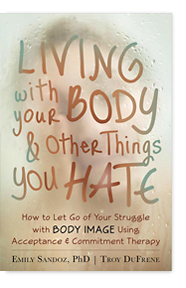 About the book:
About the book:
Let’s be honest: most people are unhappy with at least some aspect of their physical appearance. Just think of all the money we spend each year trying to improve our looks! But if worrying about your appearance is getting in the way of living, maybe it’s time to start thinking about body image in a completely new way.
Based in proven-effective acceptance and commitment therapy (ACT), Living with Your Body and Other Things You Hate offers a unique approach to addressing your struggle with body image. In this book, you will not be told that your self-perceptions are wrong, that your thoughts are irrational, or that your feelings are misguided. Instead, you will learn to live with the reality that these often painful thoughts and beliefs about yourself will arise from time to time, and that what is really important is accepting these distressing thoughts without allowing them to dominate your life.
You know what it’s like to constantly be checking the mirror, to avoid certain social situations where your body may be exposed, or to gaze longingly at a fashion model in a magazine and think, “Why can’t I be her?” But what you may not know is that people who struggle with negative body image are at an increased risk for depression, anxiety, eating disorders, and low self-esteem. Body image problems can even lead to major financial issues. By focusing on your appearance and little else, you are hurting yourself in more ways than one.
If you are ready to find a purpose in life that is more important than the pain you feel about your appearance, this book provides a truthful, powerful resource.
About the author:
Emily K. Sandoz, Ph.D., is an Assistant Professor of Psychology at University of Louisiana at Lafayette and director of the Louisiana Contextual Science Research Group. She is also a licensed psychologist who specializes in treating clients who struggle to live with peace and purpose in their bodies, including those suffering with body image disturbance, eating difficulties, medical issues, pain or sexual trauma. Emily is coauthor of Acceptance and Commitment Therapy for Eating Disorders, Mindfulness and Acceptance for Bulimia.
Guest for my radio show on Tuesday February 4, 2014
My guest this week on Relationships 2.0 is Shawn T. Smith, PsyD author of The Woman’s Guide to How Men Think: Love, Commitment, and the Male Mind.
 About the book:
About the book:
Comedian George Carlin once said, “Women are from earth. Men are from earth. Just deal with it.” Though witty, this sentiment fails to recognize one of the real truths in life: that both genders are completely mystified by one another, and often have a mile-long list of complaints for the opposite sex. Yet, generally speaking, both men and women want to get along—especially if there’s romance involved.
A Woman’s Guide to How Men Think offers a practical, humorous, yet compassionate guide for women who want to learn the secrets of the elusive male mind. With author Shawn Smith’s trademark humor, you’ll come to understand why men think and see the world the way they do, and how to work with men to cultivate understanding and communication in relationships, without expecting men to be creatures that they are not. This isn’t a male-bashing book about how men should be more like women, but a book about how men actually are, and how women can use this understanding to get what they need from their relationships.
You’ll also learn why men often feel frustrated and criticized, how to deal with lack of communication in ways that don’t put men on the defensive, and how being curious and compassionate (while not accepting disrespectful or abusive behavior) instead of dismissing men for their inherently male traits can lead to greater understanding between the sexes.
The plain truth is that both men and women are from planet earth. But that doesn’t mean we are the same. If you are looking for an insider’s guide to the ever-elusive male mind, this is the book for you.
About the author:
Shawn Smith is a clinical psychologist in Denver, Colorado and the author of two books. His first book, Surviving Aggressive People, is a highly-respected book of verbal de-escalation and violence prevention skills. His second book, The User’s Guide to the Human Mind offers a quirky but practical look at the difficulties that the typical human mind dishes out to its owner. Shawn also writes a blog at ironshrink.com, where he answers important questions such as: Can dogs learn to read? What is relational frame theory? Is my ex possessed? His writing is light-hearted, impeccably researched, and always useful.
Guest for my radio show on Tuesday July 24, 2012
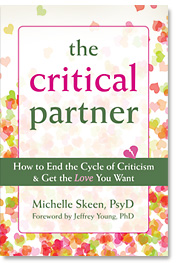 My guest for this week is Michelle Skeen… yes, I will be host and guest! I will also have a close friend of mine on my show (I will reveal his name at the beginning of the show). Over the last month, I have been having frequent conversations with people about the subject of my book The Critical Partner. It has become clear to me that there are many people who feel trapped in the role of the “critical” partner and they truly want to end the toxic role that they play in their relationship. So, I will be discussing the primary schemas that trigger this behavior as well as the alternative coping strategies that can help them move on from their maladaptive behavior.
My guest for this week is Michelle Skeen… yes, I will be host and guest! I will also have a close friend of mine on my show (I will reveal his name at the beginning of the show). Over the last month, I have been having frequent conversations with people about the subject of my book The Critical Partner. It has become clear to me that there are many people who feel trapped in the role of the “critical” partner and they truly want to end the toxic role that they play in their relationship. So, I will be discussing the primary schemas that trigger this behavior as well as the alternative coping strategies that can help them move on from their maladaptive behavior.
More about The Critical Partner
A Note to the “Critical” Partner
I have heard from many “critical” partners who are wondering if my book can help them. The answer is…YES! First, I want to say congratulations for recognizing that you are in the role of the “critical” partner is your relationship. The “vulnerable” partner is not the only person who is suffering with the relationship dynamic that I address in my book. Identifying your schema is an essential part of understanding what is driving your critical behavior toward someone who you love. Gaining a different and better understanding of yourself and your partner is powerful. The chapters containing alternative coping strategies will provide you with healthy ways to communicate with your partner. Change is difficult, but I feel very strongly that the rewards are worth the challenges that you will face. I encourage you to sign up for the journal so that you can keep a log with your thoughts and feelings. It will help you track your progress. Feel free to contact me with any questions.

 About the book: Everyone thrives on love, comfort, and the safety of family, friends, and community. But if you are denied these basic comforts early in life, whether through a lack of physical affection or emotional bonding, you may develop intense fears of abandonment that can last well into adulthood―fears so powerful that they can actually cause you to push people away. If you suffer from fears of abandonment, you may have underlying feelings of anger, shame, fear, anxiety, depression, and grief. These emotions are intense and painful, and when they surface they can lead to a number of negative behaviors, such as jealousy, clinging, and emotional blackmail. In Love Me, Don’t Leave Me, therapist Michelle Skeen combines acceptance and commitment therapy (ACT), schema therapy, and dialectical behavioral therapy (DBT) to help you identify the root of your fears. In this book you’ll learn how schema coping behaviors―deeply entrenched and automatic behaviors rooted in childhood experiences and fears―can take over and cause you to inadvertently sabotage your relationships. By recognizing these coping behaviors and understanding their cause, you will not only gain powerful insights into your own mind, but also into the minds of those around you. If you are ready to break the self-fulfilling cycle of mistrust, clinginess, and heartbreak and start building lasting, trusting relationships, this book will be your guide.
About the book: Everyone thrives on love, comfort, and the safety of family, friends, and community. But if you are denied these basic comforts early in life, whether through a lack of physical affection or emotional bonding, you may develop intense fears of abandonment that can last well into adulthood―fears so powerful that they can actually cause you to push people away. If you suffer from fears of abandonment, you may have underlying feelings of anger, shame, fear, anxiety, depression, and grief. These emotions are intense and painful, and when they surface they can lead to a number of negative behaviors, such as jealousy, clinging, and emotional blackmail. In Love Me, Don’t Leave Me, therapist Michelle Skeen combines acceptance and commitment therapy (ACT), schema therapy, and dialectical behavioral therapy (DBT) to help you identify the root of your fears. In this book you’ll learn how schema coping behaviors―deeply entrenched and automatic behaviors rooted in childhood experiences and fears―can take over and cause you to inadvertently sabotage your relationships. By recognizing these coping behaviors and understanding their cause, you will not only gain powerful insights into your own mind, but also into the minds of those around you. If you are ready to break the self-fulfilling cycle of mistrust, clinginess, and heartbreak and start building lasting, trusting relationships, this book will be your guide.









